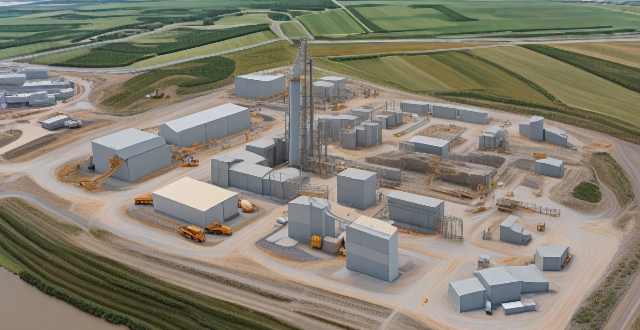Climate change affects the construction industry in various ways, including increased extreme weather events leading to damage and costly repairs, changes in building codes and standards due to new environmental conditions, a focus on energy efficiency and sustainability, potential disruptions to labor availability and supply chains, and increased insurance costs. Builders and developers must adapt by embracing new technologies and practices that promote sustainability and resilience.

How Does Climate Change Affect the Construction Industry?
Climate change is a global phenomenon that affects various sectors, including the construction industry. The impacts of climate change on the construction industry are numerous and far-reaching. In this article, we will discuss some of the ways in which climate change affects the construction industry.
Extreme Weather Events
One of the most significant impacts of climate change on the construction industry is the increase in extreme weather events such as hurricanes, floods, and droughts. These events can cause significant damage to buildings and infrastructure, leading to costly repairs and reconstruction efforts. For example, during Hurricane Katrina in 2005, over $100 billion worth of property damage occurred in New Orleans alone.
Changes in Building Codes and Standards
As a result of climate change, building codes and standards may need to be updated to account for new environmental conditions. For instance, areas that were once considered safe from flooding may now require additional measures such as elevated foundations or flood-resistant materials. This can lead to increased costs for builders and developers who must comply with these new regulations.
Energy Efficiency and Sustainability
Climate change has also led to an increased focus on energy efficiency and sustainability in the construction industry. Buildings that are designed to reduce energy consumption and carbon emissions can help mitigate the effects of climate change while also reducing operating costs for owners and occupants. This has led to the development of new technologies and materials aimed at improving energy efficiency in buildings.
Changes in Labor Availability
Climate change can also affect labor availability in the construction industry. For example, extreme heat waves can make it difficult for workers to perform physical tasks outdoors, leading to delays or even project cancellations. Additionally, natural disasters such as hurricanes or wildfires can disrupt supply chains and transportation networks, making it challenging to get materials and equipment to job sites.
Insurance Costs
Finally, climate change can also impact insurance costs for the construction industry. As extreme weather events become more frequent and severe, insurers may raise premiums or limit coverage for certain types of projects or locations. This can add additional financial burdens for builders and developers who must factor these costs into their budgets.
In conclusion, climate change has a profound impact on the construction industry, affecting everything from project planning and design to labor availability and insurance costs. To adapt to these changes, the industry must remain flexible and innovative, embracing new technologies and practices that promote sustainability and resilience in the face of a changing climate.